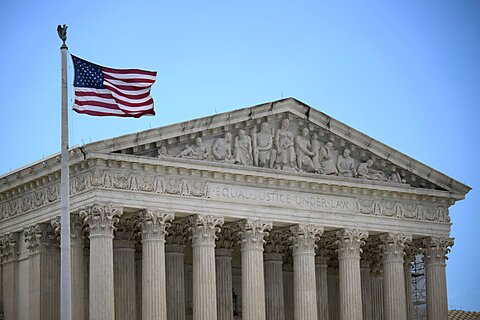Walter Olson
What follows is a statement I wrote on June 27 following the Supreme Court’s decision in Trump v. CASA, the universal injunctions/birthright citizenship case:
Do courts have the power to tell the government to stop enforcing an unconstitutional measure, period, or may they only tell it to stop enforcing it against whoever sued? In the 1925 Pierce v. Society of Sisters case, whose centennial we celebrate this year, was the district court right to say that Oregon could not enforce its ban on private schools at all, or should it just have told the state to stop enforcing the ban against the particular private schools that sued? In West Virginia State Board of Education v. Barnette (1943), was the district court right to order the state not to expel any students who declined to salute the flag or say the Pledge of Allegiance, or should it have confined itself to the rights of the two Jehovah’s Witness children who sued?
Today, a majority of the Supreme Court rushed to declare a sweeping new ban on so-called universal injunctions. As a policy matter, there are serious arguments both for and against the use of these injunctions, suggesting that insisting on a single sweeping result might not make sense. And as Justice Sotomayor’s dissent makes clear, the historical materials on the extent to which court orders across American history have sought to vindicate the rights of persons not in court are a mixed bag, again not well suited to peremptory dismissal.
The most prudent—perhaps also the most equitable—course might have been for the Court simply to turn away the Trump administration’s request for stays and let the course of ordinary litigation proceed. As Sotomayor notes, that would be consistent with the idea that the federal government had not itself come to court seeking to do equity, as equity requires—it is instead attempting to subvert a precious and well-established constitutional right, that of birthright citizenship—and that it does not suffer what the law should deem “irreparable injury” by having to delay these designs.
Even in less dangerous times, the Court would have done better to avoid today’s ruling and leave some of the issues it raises for a later day. But the present moment—in which the Trump administration has launched a full-court press of deliberate lawbreaking and seeking to escape the judicial scrutiny that inevitably follows—is the worst time for it.
More reading: colleague Ilya Somin is generally critical but notes that “exactly how bad the consequences will be depends on the extent to which other remedies can be used to forestall them.” Anthony Sanders in The UnPopulist foresees bad results in cases where federal district courts respond to unlawful behavior by states or cities (often overlooked in the federal-centric coverage of this weekend). From the other side, Jack Goldsmith makes what I suppose is the most optimistic case available: that the decision 1) was long foreshadowed and would inevitably have happened at some point and 2) preserves in the Court’s own hands the basic tools needed for judicial restraint of executive illegality, provided this and future administrations actually live up to the representations made at oral argument of future compliance with Supreme Court rulings. (Which seems like a lot to stake on a “provided.”) And to be fair, I should mention also that academic commentators whose work I usually find persuasive, such as Samuel Bray and Will Baude, believe Justice Amy Coney Barrett’s majority decision was correct on the law.
Cross-posted with minor changes from the author’s Substack.


